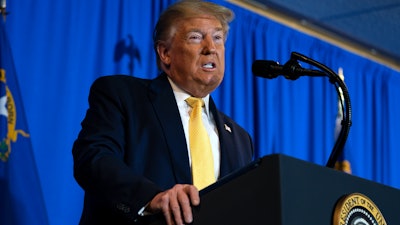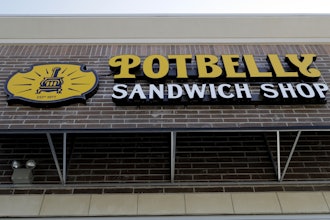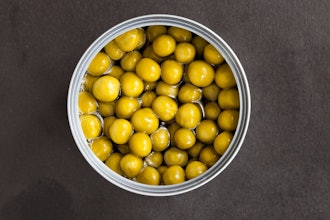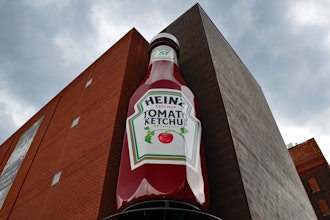
WASHINGTON (AP) — President Donald Trump signaled Friday that he’s prepared to tap federal coffers again to help farmers suffering from the tariff fights that he initiated.
The Trump administration over the past two years has committed to providing farmers with $27 billion in assistance. Agriculture Secretary Sonny Perdue has said that a third year of financial assistance would not be necessary since China had committed to increasing its agriculture purchases under a Phase 1 trade deal.
But China’s economy is being rocked by the new virus that has infected more than 75,000 people and forced many businesses and factories to temporarily close. Administration officials have floated the possibility in recent weeks that the new coronavirus may delay some of the anticipated purchases by China. Meanwhile, data from the Administrative Office of the U.S. Courts shows an uptick in farm bankruptcies last year, 595, versus 498 the year before.
Typing in all capital letters, Trump tweeted that if “our formally targeted farmers need additional aid until such times as the trade deals with China, Mexico, Canada and others fully kick in, that aid will be provided by the federal government, paid for out of the massive tariff money coming into the USA!.”
Trump's claim that tariff money is coming into the U.S. is inaccurate. Tariffs are paid by American companies, which usually pass the cost on to consumers through higher prices.
Trump’s comments come after the Washington Post reported that the Department of Agriculture’s chief economist, Robert Johansson, projected that agricultural exports to China would reach roughly $14 billion in the fiscal year that ends Sept. 30, only a $4 billion increase from one year ago. The Wall Street Journal also reported Perdue’s comments that his department isn’t planning for another round of financial aid unless there is an unexpected disruption in global trade.
The low projection from the Agriculture Department economist contrasted with the administration’s description of the Phase 1 trade deal. Under the deal, China is supposed to buy $40 billion in U.S. agricultural products a year — a wildly ambitious goal considering that it’s never bought more than $26 billion a year and that during the trade war it has redirected some of its farm purchases to other exporting countries.
Trump has raised expectations for farmers going into the election year, telling them at his campaign rallies that they will need to buy bigger tractors to meet the coming demand for their corn, soybeans, beef and pork. Farmers could play a key role in the coming presidential elections in states such as Wisconsin, Minnesota, Iowa and Michigan.






















